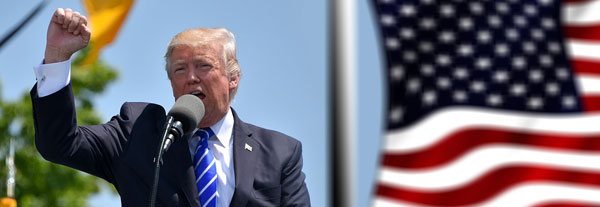Stars clash with Trump campaign over unauthorized use of music

[An image of Donald Trump. Photo Credit to Pixabay]
Donald Trump's presidential campaign has sparked a wave of controversy among pop artists as the campaign is accused of playing popular songs without permission.
On July 31 in Pennsylvania, Trump’s team played Beyoncé's "Texas Hold 'Em" from her latest album at a rally.
The move ignited pushback from the artist's supporters and legal team.
The issue escalated when Steven Cheung, a spokesperson for Trump, used another Beyoncé track, "Freedom," in a social media video.
"Freedom" is well-known for its symbolic significance in the Democratic campaigns, particularly with Vice President Kamala Harris.
Beyoncé, a long-time Democrat supporter, had not authorized the use of her music in the Trump’s campaign.
Following threats of legal action from her record label, the video was quickly taken down.
The issue of unauthorized music use in Trump's campaign extends beyond Beyoncé.
At an Arizona event on August 23, the campaign played "My Hero" by the Foo Fighters without permission.
The band's spokesperson stated that they had never been approached for approval and noted that any royalties from the unauthorized use would be donated to Kamala Harris’s campaign.
Similarly, Celine Dion publicly condemned when her iconic song "My Heart Will Go On" was used at a Trump rally.
She took to social media platforms X and Instagram toemphasize that her consent was never given.
Further compounding the controversy, the estate of Isaac Hayes filed a lawsuit against the Trump campaign for using the song "Hold On, I'm Comin'" without authorization during the 2020 campaign and at a recent rally in Montana.
According to The Hill, the Hayes estate is seeking $3 million in damages.
The repeated theme of unauthorized music use in political campaigns often leads to disputes.
In the realm of political campaigns, the use of copyrighted music often raises questions about fair use.
The doctrine of fair use allows certain unlicensed uses of copyrighted material, but this does not automatically apply to campaign settings.
Fair use involves a detailed analysis that considers factors like whether the use adds a new expression or message and its impact on the market value of the work.
Campaigns need to navigate these issues carefully to avoid legal disputes and respect the rights of original creators.
By adhering to copyright laws and securing all necessary permissions, political organizations can respect artists' rights and avoid the risks of unauthorized use.
This ongoing issue highlights the complex interplay between politics, copyright law, and artists’ rights.
As campaigns continue to leverage popular music to energize supporters, they must also ensure that they are not infringing on the rights of the creators.
The challenges of respecting artistic integrity while engaging in political expression continue to shape the landscape of campaign music use, making it a focal point of both legal scrutiny and public discourse.

- Sunwoo Park / Grade 10
- Korea International School Jeju

![THE HERALD STUDENT REPORTERS [US]](/assets/images/logo_student_us.png)
![THE HERALD STUDENT REPORTERS [Canada]](/assets/images/logo_student_ca.png)
